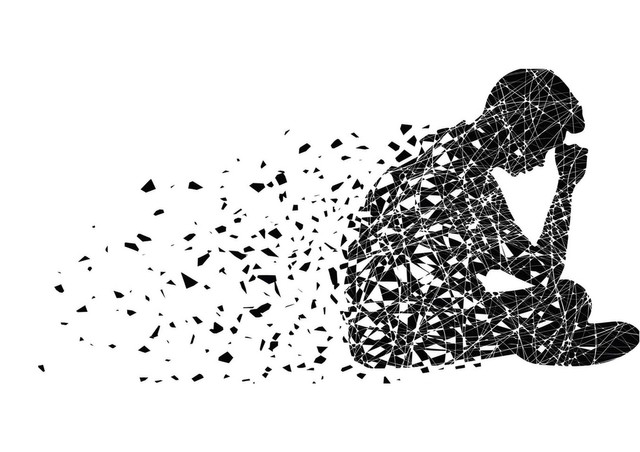Hannah Eng
Mental Wellness Director
You’ve heard it by now, engineering can be hard. Engineering at UofT can be hard. And it’s one thing to hear it, but another thing to know it. I bet you any sum of money that if you were to ask any Skuligan, a student in Engineering at this university, about a time they were stressed, they would have a story for you. Staying up all night to finish their code/project or being anxious about the upcoming midterm and the sheer amount of information they needed to study. However, they will also tell you how they were able to overcome that stressful situation. If you ever find yourself feeling overwhelmed, stressed, insufficient, anxious or anything else, know that it is okay. You are going to be okay. Countless people in Engineering have felt that way but they have all gotten through it with the help of friends, family, and resources, and you will too. Furthermore, there are so many people who want to help you get out of that bad place. The following is a list of just some of the resources, that you can reach out to when the going gets tough.
Family and Friends
Talking through a stressful situation can help you identify what is causing your stressful feelings and what you can do to eliminate or lessen them. Family members and/or friends that you feel comfortable talking to about how you are feeling can be an amazing resource for helping you reduce stress! Because they are the most likely to know you and your situation, they can offer you help that is most tailored to you. A good practice is to schedule regular time (e.g. a certain hour every week) to check in with family/ friends, especially if you are an international student. A simple, yet honest, “How are you? What’s going on in your life?” can make all the difference between a good day and a bad day for the both of you! Wanting to build up your close circle of friends? Joining a club or activity you’re interested in is a great way to do so. Skule™ itself has many, many, many opportunities for you to explore.
Academic Counsellors, First Year Office, and Registrar
Every discipline (and the First Year Office for specifically you 2T2s!) has academic counsellors designated to help you balance your academics and your well-being. For example, they can help you with discerning if you need to speak with a professional about your health and/or making changes to your courses at the Registrar. The engineering academic workload is rigorous. Be honest with yourself if it is putting too much stress on yourself. A lighter course load may be what it takes for you to be successful!
Health and Wellness Center (Koffler Center–where the UofT Bookstore is)
Your mental and physical well-being are interrelated and may both be causes of why you are feeling unwell. It can be difficult to discern what is the exact cause, and it may be worth speaking with a professional. You can make appointments to do so at the Health and Wellness Center. It may take some time to get availability for an appointment , but it is worth it if it will help you.
“Feeling Distressed?”
You will find this on several UofT sites and at the end of mass emails. This will take you to a list of hotlines you can call, designated online chat rooms, and other resources to use when you feel stressed or overwhelmed. You can contact the folks at Good-2-Talk anytime, from when you are extremely stressed to when you just want to chat. No reason is too small to reach out.
Skule™ Mental Health and Wellness–wait, that’s me!
You will find that the UofT colleges have designated wellness student representatives; so does Skule™! My name is Hannah Eng (yes, that really is my last name) and I am SkuleTM’s Mental Health and Wellness Director 1T8-1T9! My team and I are here to promote the well being for the students of Skule™. In the past we’ve held events in the Pit, held forums to discuss our mental health experiences, and provided de-stressing resources– everything from points of contact to bubble wrap. The past director has also created a Mental Health and Wellness Handbook which is chalk-full of resources and tips specific to Skule™.
Please note, that some of the information is out-of date. This year’s team and I are working to update it. In addition, one of our main goals for the year is to increase the knowledge and accessibility of proactive mental health practices and resources at UofT. If you want to give yourself a head start, give us a follow on Facebook (@SkuleMHW) and Instagram (@skulementalwellness)! The team can also be reached over email (mentalwellness@skule.ca). Feel free to send us questions, feedback, ideas, or anything that is on your mind. We all took this position to help our fellow students!
Wellness Tips for Anywhere, Anytime
Much like washing your hands or eating healthy can prevent you from catching a cold, there are daily practices and good habits to help you stay mentally healthy. Here are just three:
- Take Mindful Deep Breaths: Key-word here being mindful. There are several developed methods to breathing, such as breathe in for four seconds, hold for seven and breathe out for eight. My personal favorite is the breathe in for four, out for two. However, simply being aware of your breathing will help you slow down, be more in tune with your body and how it’s feeling, and generally remove you from immediate stressors and refocus you.
- Regularly drink small sips of water. Drink water is like the mantra of health gurus, but why? Because your body uses up the water to regulate your body temperature, breathe, digest, i.e. survive. An hour of intense mental activity, such as studying or cramming for an upcoming midterm, can deplete 2% of your water storage. It only takes losing 1% to start feeling dehydrated. So does this means I have to drink “8 cups of water a day”? Not necessarily. It’s actually better to take small sips of water throughout the day, rather than large gulps in one sitting.
- Take time to move every hour. Your body is designed to move! Give your brain a break by taking the time to stretch, walk around, or exercise. A rule of thumb is to move around for five minutes at the end of every hour. This can be as simple as rolling your shoulders, wrists, and ankles, trying to touch your toes or walking in place. You would be surprised by how refreshed and refocused you feel.
There are a lot of resources to help you and your well-being. This article is just one scratch of the iceberg. However, the best piece of advice I believe I can impart to you is you do you. Everyone has mental health, and much like people have different dietary preferences, everyone has their own way to best take care of their mental health. You may find some of these resources helpful, or you may not like any of these. I encourage you to find what works for you to help you. My challenge to you is to do one thing for yourself for ten minutes everyday, whether it is reading, listening to music, or having a cup of tea. Little things may not change the fact that all your midterms have been scheduled in the same week. But, they can change how you are able to handle the stress load and perform to the best of your ability. Yes, being an engineering student is hard, but that does not mean you have to be hard on yourself too.



